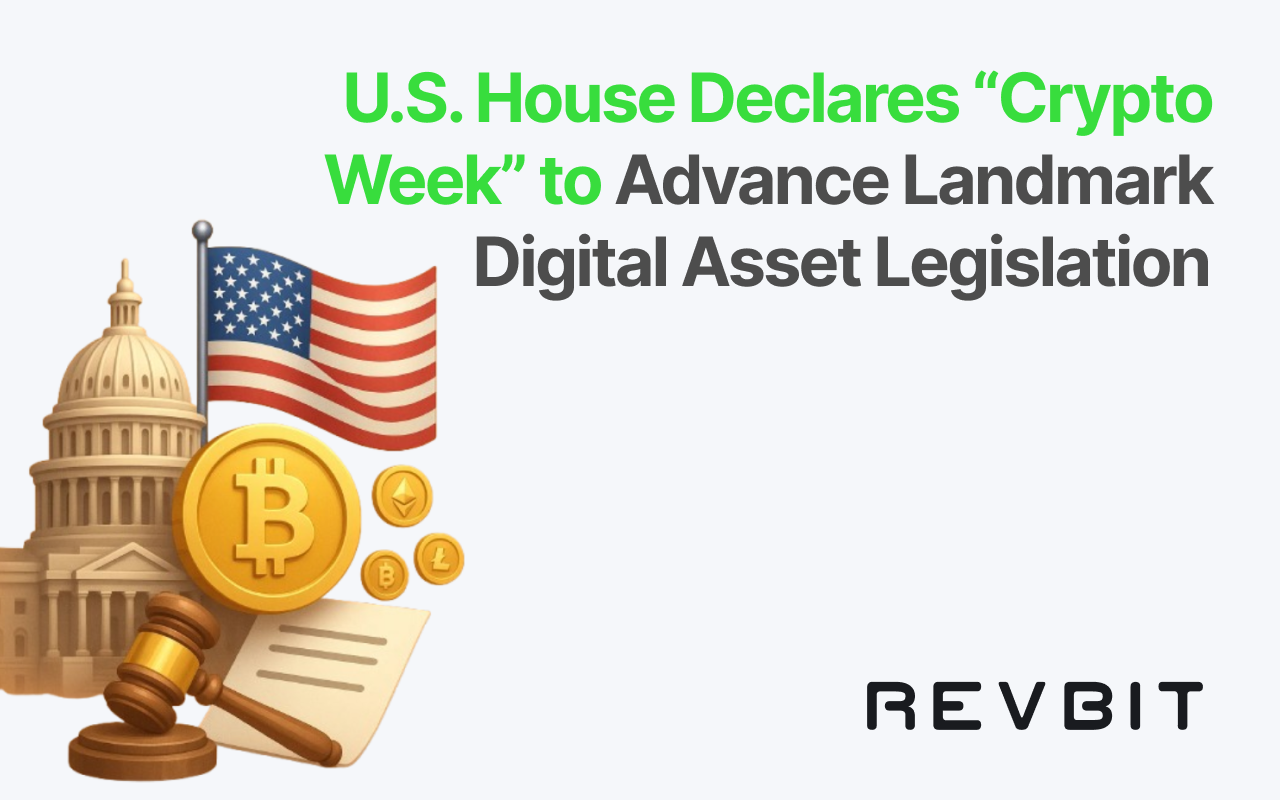
The U.S. House of Representatives has designated the week of July 14–18, 2025 as Crypto Week, during which lawmakers will consider three major bills: the GENIUS Act, CLARITY Act, and Anti‑CBDC Surveillance State Act. This represents a coordinated push to establish a comprehensive crypto regulatory framework under the Trump administration’s agenda.
Background and timing
In a joint announcement, Speaker Mike Johnson and committee chairs French Hill (Financial Services) and GT Thompson (Agriculture) confirmed the mid‑July timeline for Crypto Week. The key bills — the GENIUS Act (stablecoin regulation), CLARITY Act (crypto market structure), and Anti‑CBDC Surveillance State Act (ban on a U.S. retail CBDC) — have received earlier committee approval and bipartisan interest ainvest.com. The House may finalize votes by week’s end.
What each bill entails
GENIUS Act (Guiding and Establishing National Innovation for U.S. Stablecoins):
-
Passed the Senate on June 18 with a 68–30 vote.
-
Requires stablecoin issuers to maintain 1:1 reserves in liquid, high-quality assets (cash, Treasuries).
-
Mandates monthly audited disclosures, AML/KYC procedures, prohibition on issuing interest, and ability to freeze assets .
-
Introduces dual oversight: federal for large issuers, state for smaller providers.
-
Aims to balance innovation with consumer protections; critics warn it may limit stability or block algorithmic stablecoins .
CLARITY Act (Digital Asset Market Clarity Act):
-
Seeks to delineate regulatory oversight between the SEC and CFTC based on tokens’ characteristics (security vs. commodity) .
-
Proposes licensing requirements for exchanges, custodians, and intermediaries.
-
Passed committee votes of 32–19 (Financial Services) and 47–6 (Agriculture).
-
Recognized by lawmakers as a necessary step to promote innovation and regulatory clarity.
Anti‑CBDC Surveillance State Act:
-
Seeks to prohibit the Federal Reserve from issuing any retail CBDC without explicit congressional approval.
-
Positions itself as a defense of financial privacy and opposition to “surveillance finance”.
-
Has seen narrower support (27–22 committee vote), reflecting partisan tensions.
Political context and motivations
The Crypto Week initiative aligns strongly with the broader GOP and Trump administration agenda, which emphasizes rapid passage of digital asset legislatio. Rep. Tom Emmer described it as a “historic opportunity” to push U.S. leadership in crypto. Major pro-crypto Republican lawmakers (Hill, Thompson, Johnson) aim to capitalize on the momentum of the Trump-backed GENIUS Act, urging action before Congress’s August recess.
Implications for crypto markets
Should Crypto Week succeed, it would mark a major shift toward regulatory certainty in the U.S. stablecoin and crypto sector:
| Area | Current State | Post-Legislation Change |
|---|---|---|
| Stablecoins | Fragmented standards, grey compliance | Unified federal framework with reserve/audit rules |
| Market structure | Confusion between SEC/CFTC roles | Clear jurisdiction and licensing |
| CBDC policy | Fed exploring digital dollar pilots | Retail CBDC ban unless Congress approves |
Supporters argue that these frameworks will enable institutional adoption, consumer protection, and U.S. competitiveness globally. However, some warn overly restrictive rules could suppress innovation or create loopholes that firms exploit .
Industry reactions
-
Circle and Ripple both recently applied for national bank charters, reflecting preparation for a regulated stablecoin future .
-
Amundi, a leading asset manager, cautioned that unregulated U.S. stablecoin growth could disrupt global payment systems and erode dollar primacy reuters.com.
-
Analysts view Crypto Week as a pivotal moment—regulatory clarity could unlock institutional inflows and spur crypto innovation.
What to watch next
-
House votes: Likely on one or more bills within Crypto Week (July 14–18).
-
Senate action: Especially on provisions like the Anti‑CBDC ban.
-
Presidential sign‑off: Trump has publicly supported the GENIUS Act and aims for swift passage.
-
Implementation timeline: If passed, stablecoin issuers will have 12 months to comply; CLARITY Act licensing and oversight expected soon after.
Overall, Crypto Week sets the stage for a regulated, stable, and privacy-respecting digital asset future in the U.S.—with implications for exchanges, stablecoin issuers, and crypto-native platforms.